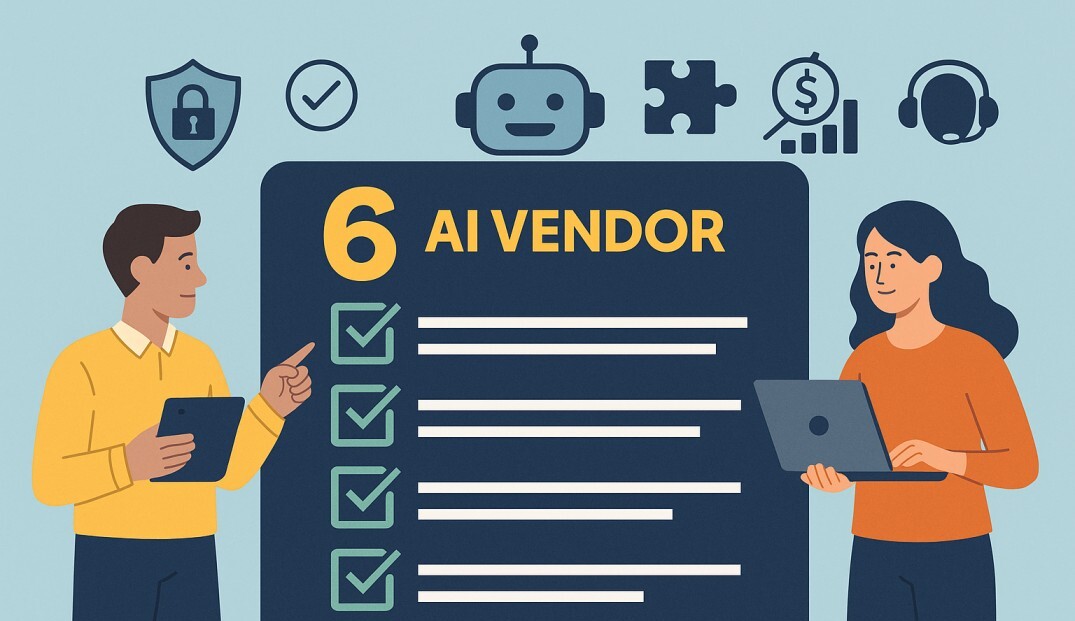The integration of Artificial Intelligence (AI) into behavioral health education offers exciting opportunities to enhance clinical training. However, adopting these tools also entails significant risks and responsibilities. Universities must carefully vet AI vendors to ensure their products are ethically sound, pedagogically effective, and compliant with legal and professional standards.
This guide provides a checklist of essential criteria for selecting an AI clinical training tool.
🔐 1. Data Privacy and Compliance: HIPAA and FERPA
Data security is paramount. AI tools often handle sensitive information about student performance and simulated client scenarios.
- HIPAA Compliance: If the tool is used in the context of clinical training, the vendor should be HIPAA compliant and willing to sign a HIPAA Business Associate Agreement (BAA).
- FERPA Compliance: The Family Educational Rights and Privacy Act (FERPA) protects the privacy of student education records. The vendor must demonstrate compliance and provide a FERPA agreement outlining how student data is protected.
- De-identification Protocols: The tool should have clear protocols for ensuring that students do not enter actual client Protected Health Information (PHI).
TeleMental Health Training (THT) provides both a HIPAA BAA and a FERPA agreement, ensuring compliance with the highest data security standards.
🧩 2. LMS Integration and Ease of Use
The tool should integrate seamlessly into the university's existing Learning Management System (LMS).
- LTI Integration: Look for vendors that support Learning Tools Interoperability (LTI) for easy integration with most LMS platforms (e.g., Canvas, Blackboard, D2L, Moodle).
- User Interface (UI): The tool should be intuitive and easy to navigate, minimizing the learning curve.
THT's AI activities are built on an LMS framework and integrate with most other LMSs via LTI, ensuring ease of use and seamless access.
📊 3. Faculty Access and Progress Tracking
Faculty need visibility into student progress to provide targeted support and evaluate performance.
- Dashboard and Reporting: The tool should provide a comprehensive dashboard that allows faculty to monitor student engagement, review activity transcripts, and track skill development.
- Gradebook Integration: Seamless integration with the LMS gradebook simplifies the assessment process.
THT provides faculty with full access to their students' activity and progress through a dedicated LMS portal.
🎯 4. Customization and Pedagogical Flexibility
The tool should support the program's specific curriculum and pedagogical approach.
- Scenario Customization: Look for tools that enable faculty to create or customize scenarios aligned with specific learning objectives.
- Feedback Customization: The ability to tailor feedback to the student's developmental level and the program's theoretical orientation is crucial.
THT offers customizable role-play builders, such as the Clinical Role-Play Builder. Furthermore, THT collaborates with universities to create entirely new, customized training tools tailored to their unique program requirements and learning objectives.
🧑⚕️ 5. Clinical Oversight and Ethical Guardrails
Professionals with expertise in behavioral health should guide the development and management of AI clinical training tools.
- Clinician-Managed: Is the tool designed and managed by licensed clinicians who understand the nuances of clinical practice, ethics, and supervision?
- Ethical Frameworks: The AI should be programmed to reference relevant ethical codes (e.g., NASW, ACA, APA).
- Safety Protocols: The tool must include built-in safety protocols to address crises or complex ethical dilemmas, directing users to consult a human supervisor.
THT's AI tools are designed and managed by licensed clinicians, ensuring they are ethically grounded, clinically relevant, and aligned with professional standards.
💬 6. Live Support and Training
Adopting new technology requires adequate support and training.
- Technical Support: The vendor should provide responsive technical support for both faculty and students.
- Faculty Training: Comprehensive training and resources should be available to help faculty effectively integrate the tool.
THT provides comprehensive training and live support to ensure successful implementation and integration.
✅ Conclusion
Selecting an AI clinical training tool is a critical decision that impacts the quality of education and the development of future clinicians. By carefully evaluating vendors against these criteria, behavioral health programs can ensure they adopt tools that are safe, effective, and aligned with the profession's values.
🚀 Make the Right Choice for Your Program
Selecting the right partner is crucial for successful AI implementation. Learn more about THT’s comprehensive approach on our AI for Universities page.
If you are currently evaluating AI tools or interested in custom development for your program, contact me, Raymond Barrett, LMHC, Founder and CEO to discuss how THT meets these critical criteria and to schedule a demo.
